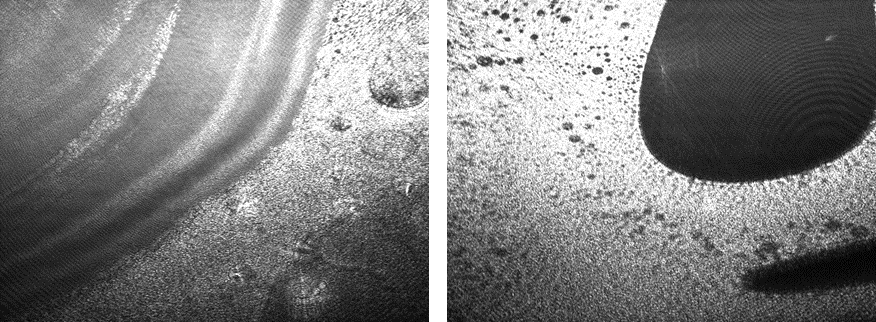
Organic pollutants are known to accumulate within and disrupt fatty regions such as cell membranes. The disruption of cell membranes can cause cells to function improperly or even die. As part of her MS research, trainee Aleksandra Naumann conducted a series of experiments with a Langmuir trough to show that PFAS can impact the structure and mechanical properties of simplified model bacteria membranes as well as bacterial membranes extracted from an environmentally important bacteria Alcanivorax borkumensis. Overall, her results indicate that exposure to PFAS disordered the membrane lipids, weakening the membrane. Of the PFAS studied, perfluorooctane sulfonic acid (PFOS) and perfluorononoic acid (PFNA), both with eight fluorinated carbons, were found to have the greatest impact on the bacterial membranes. Perfluorohexanoic acid (PFHxS) and perfluorooctanoic acid (PFOA) also caused membrane disordering, but to a lesser extent. These results indicate that PFAS can alter the properties of model and isolated bacteria membranes, and that the extent of disordering caused by PFAS correlates with their hydrophobicity.
Aleksandra Naumann successfully defended her MS thesis – “Influence of PFAS on the Thermodynamic Membrane Properties and Growth of A. borkumensis” on July 27, 2020. She is now returning to Germany where she will finish her degree and pursue a job in industry.


